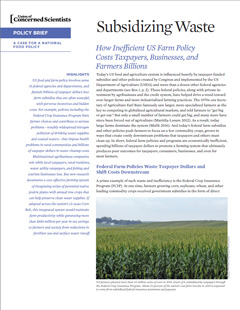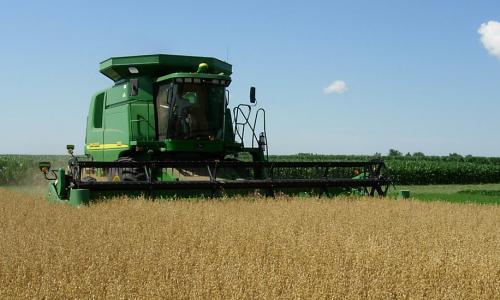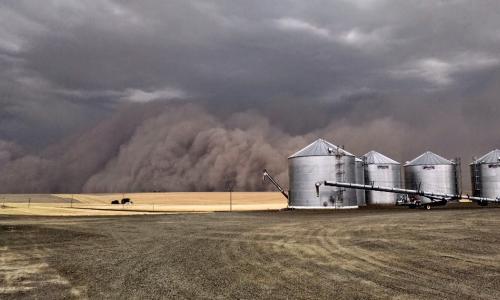The US food system is largely a product of federal agricultural policy, which is created by Congress and implemented by some 15 federal agencies and departments, often working at cross-purposes. Taxpayers spend billions of dollars each year on farm subsidies and other food-related policies.
But these direct costs are only half the story. By shaping farmers' choices, food policy produces consequences with costs of their own. For example, our current system of farm subsidies encourages farming practices that pollute downstream water supplies. The resulting damage to drinking water and to the fishing and tourism industries costs local taxpayers and businesses additional billions.
The good news, as our 2016 report Subsidizing Waste points out, is that farmers can greatly reduce fertilizer pollution by adopting innovative, science-based farming practices. And by including support for such innovative practices in a comprehensive national food policy, federal policymakers could save taxpayers, businesses, and farmers themselves a bundle of money.








